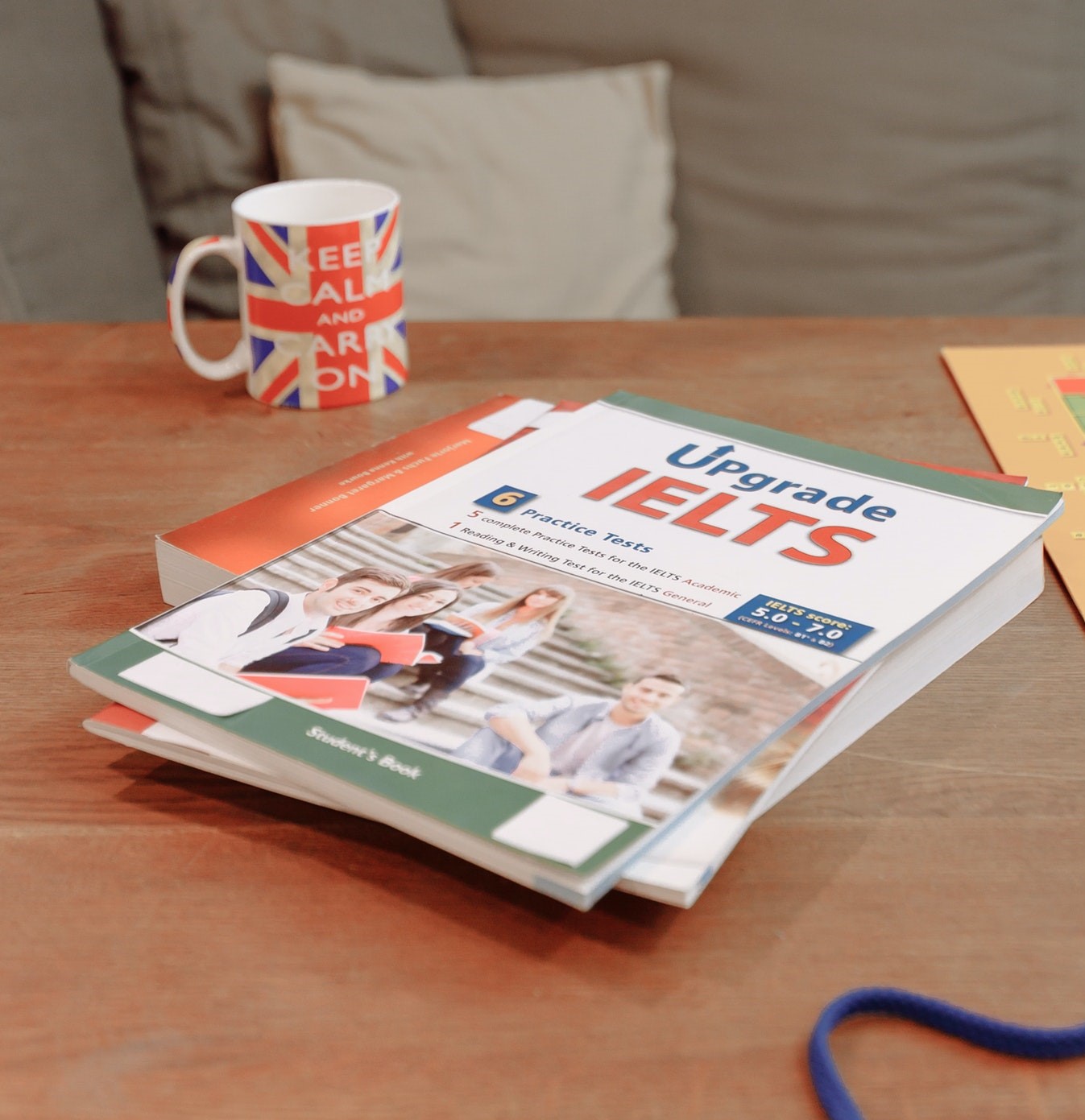IELTS speaking part 3 success
In the IELTS speaking exam part 3 the examiner will ask a number of additional questions in some way related to the topics covered in part 2.
This part of the test is intended to allow you to discuss more abstract issues and ideas. It is more like a two-way conversation with the examiner that will last about 4-5 minutes.
The examiner will sometimes try to push you to your English limits in part 3, and the point at which you are unable to respond informs the examiner about the upper limit of your speaking ability. Don’t consider yourself to have “failed the test” if you can’t answer a question at all or poorly. By doing this the examiner can decide for example if you are a 6.5 or a 7.
As part 3 is intended to be a simulated discussion, you should really try to communicate as well as discuss the topic, unlike in part 1 where you just simply answer the questions. Your answers should be full of detail and even introduce new points that are not directly connected to your main answer.
In part 3 the examiner is looking for and testing your more advanced language skills, with the use of, more advanced vocabulary, grammar and more advanced coherence skills.
In part 3 you first need to answer the basic question, and then add further information, developing your answer, expressing your opinions and further discussing the topic, even though the question did not directly ask for this further information.
How to prepare
 To prepare for IELTS speaking part 3 takes practice and lots of it. Preparing the language needed for part 3 is not enough on its own, and you must actually practice using it with a speaking partner, or better still a professional IELTS tutor.
To prepare for IELTS speaking part 3 takes practice and lots of it. Preparing the language needed for part 3 is not enough on its own, and you must actually practice using it with a speaking partner, or better still a professional IELTS tutor.
A lot of students get to part 3 and say things like, “ I’ve really never thought of that before” or “I don’t know anything about that topic” and “I can’t even answer that question in my own language.”
This is another good example of how it takes a lot of time and effort to properly prepare for your speaking exam, and is not something that you can just cram into two weeks if you are serious about getting the band score you need.
A good way to start your part 3 preparation is to start by looking at some of the IELTS speaking part 3 questions on this website, and then practice answering them in your own language first. This will give you a better understanding of the question types as well as what you need to do in part 3.
This brings us on to the next potential problem, which is that maybe even though you have the English skills, you don’t have enough knowledge on the topic to give a full answer in part 3 which of course puts you at a disadvantage.
 This is where you might need to think about improving your general knowledge on certain topics, but using search engines and all the other great resources available on the internet.
This is where you might need to think about improving your general knowledge on certain topics, but using search engines and all the other great resources available on the internet.
You can again do this in your own language to save time, although reading some articles in English is always a good idea to help you increase your vocabulary. With some more difficult part 3 questions, you could even copy the exact question into a search engine, again in your own language, as very often the English vocabulary in some of these articles will be too advanced and inappropriate for use in the speaking exam. Remember these searches are to just give you ideas and a basic knowledge of the topics you may find difficult, which is a great start.
Some good examples of topics used in part 3 are as follows;
- Change
- Society
- Education
- Child development
- human psychology / people’s motives and feelings / personality types
- values, attitudes and beliefs / the formation of or sources of values, attitudes and beliefs / the influences that can cause changes in attitudes, values and beliefs
- male-female differences
- differences between young people and old people
- the problems of old people
- the environment
- personal qualities needed for different vocations (different careers or different kinds of work)
- skills / the formation of skills / skills needed for different kinds of work
- culture (including your national culture)
For all topics there are a number of things you should think of, and try to come up with ideas and opinions on.
- The importance of this topic / importance to society / importance for you, personally
- Your personal feelings and opinions about this topic
- Social problems or controversial questions connected to this topic / the causes and results of these problems / possible solutions to these problems ( This is very useful for developing your answer further)
- changes in this topic in the past few decades / the sources of or causes of these changes
- likely future changes in this topic in the next few decades / the sources of or causes of these changes
- male-female differences connected to this topic
- old-young people differences connected to this topic
- rural-urban differences connected to this topic ( Compare the topic in relation to big cities and smaller towns)
- the role of government in this topic / the responsibilities of government towards this topic. ( What do you think the government should or could do to solve this problem?)
Now start looking at the many part 3 questions on this website, firstly just getting familiar with the styles of questions in the exam. Don’t worry yet about answering the questions, but at first just getting a feel for the different points of discussion that exist in part 3.
Many students like to look at example answers in the many IELTS study books and websites available, and this is a good idea to help you understand the language, grammar and structure needed to get through part 3. However, as in part 2, be careful, and don’t go memorising answers or you will be punished by the examiner. The examiner wants your answer, so always try to speak naturally, and keep expressing your personal opinions, so as not to sound like a robot speaking in a flat monotone voice.
When looking at example answers, memorise some vocabulary and grammar structure, but do not memorise the whole answer. It’s also a good idea to practice paraphrasing, which is always a useful tool, for both the speaking and writing part of the IELTS exam. Try answering the question in a few different ways every time you answer it, which really is a great way to improve your English, especially when speaking under pressure.
Example or model IELTS speaking answers are useful for vocabulary research, or sentence structure and grammar, but should never be memorised.
Part 2 and 3 example answers – Lots of example part 2 and 3 answers with audio
Comparing and contrasting two things
 One of the most common style of questions in part 3 is to compare and contrast two things.
One of the most common style of questions in part 3 is to compare and contrast two things.
The most frequent examples for this are;
- Young – Old
- Male – Female
- Past – Present
- Rural – urban
Do older people like to visit the same kinds of places as young people?
Do boys in your country enjoy the same kinds of sports as girls?
Have the kinds of toys children play with today changed from the past ?
Do people in your country prefer to live in a big city or a smaller town?
Notice how in these questions the examiner may not actually use the word “compare” but, in order to answer this style of question you should be making comparisons between both A and B.
How to answer these kind of questions
Very often a lot of students have a problem starting their answers quickly in part 3, and often sit in silence for too long, which of course will lower your band score. One way to start here is to use a general statement before you start comparing, which will give you a little time to get some more of your thoughts and ideas together.
“Well, there’s actually a big difference between these two things……’
“Oh, there are certainly a number of differences between the two…”
“Well, let me think….. Young people are usually more adventurous than older people, so they often like to visit places that offer some form of excitement or adventure, such as theme parks. In contrast, older people generally prefer to go somewhere quieter and more relaxing, where they can get away from the hustle and bustle of their daily lives…..so….”
In this answer I start with a general statement;”Well,young people are usually more adventurous than older people.” I then add a conclusion to the sentence. So, they often like to visit places that offer some form of excitement.
What are some differences between living in a big city and a smaller town?
“Well, smaller towns are usually less developed than big cities, so homes are often less expensive than in the bigger cities. Furthermore, smaller towns are less crowded than big cities, so living in a smaller town can be more peaceful than living in a big city.”
Using this language of comparison can be very useful in answering many of the possible part 3 questions, even if the examiner does not directly ask you to compare. By using these 4 common forms of comparison you will be able to talk about just any possible topic.
- Young – Old
- Male – Female
- Past – Present
- Rural – urban
Do people in your country enjoy shopping?
 “Generally speaking,people in my country do enjoy shopping. Younger people in particular find a sense of enjoyment in the actual shopping experience, and often love to spend their weekends in the many shopping malls we have today. However , a lot of older people really only go shopping to buy what they need, so are actually less interested in shopping than younger people.
“Generally speaking,people in my country do enjoy shopping. Younger people in particular find a sense of enjoyment in the actual shopping experience, and often love to spend their weekends in the many shopping malls we have today. However , a lot of older people really only go shopping to buy what they need, so are actually less interested in shopping than younger people.
People’s shopping habits have also changed in recent years, and these days more and more people now do most of their shopping online, which of course is more convenient than before, and I believe this has led to people actually going out to shop less frequently than in the past……….”
In this answer I compared young – older and past – present to come up with ideas and expand my answer.
Even though this question does not directly ask you to compare or contrast, it’s a good way to answer the question, and will always make it easier to develop and expand your answer. Furthermore you will be giving the IELTS examiner what they are looking for.
Have a look at some of these part 3 questions, and think of how you could answer them using comparisons.
What kind of decisions do people often make in their daily lives? (young-older)
What are some differences between transportation in the city compared to the countryside?
What kinds of exercises/sports are popular in your country today ? (young-older, male-female)
What kind of places do people like to visit in your country? (young-older)
Has the travel industry changed in recent years? (past-present)
What kinds of books are popular in your country? (young-old, male-female)
What are some differences between reading a book, and watching the movie version of the book?
What time do people in your country often get up in the morning? (young-old)
Do people in your country enjoy shopping? (young-older, male-female, past-present)
How do people generally make friends in China ? (young-older)
Do young people have the same ambitions as older people ?
What are some differences to living in a big city or a small town ?
What kinds of music are popular in your country? (young-older, past-present)
Problems and solutions.
 Discussing problems and solutions to those problems is something that can also often be asked in IELTS speaking part 3. As with comparing and contrasting, it is something that the examiner may not directly ask you, but you will almost certainly have the chance to bring it into your extended answers in part 3, and help to achieve IELTS speaking part 3 success.
Discussing problems and solutions to those problems is something that can also often be asked in IELTS speaking part 3. As with comparing and contrasting, it is something that the examiner may not directly ask you, but you will almost certainly have the chance to bring it into your extended answers in part 3, and help to achieve IELTS speaking part 3 success.
Do you think we need to change the way of transportation to protect the environment?
“Yes , personally I believe that we really need to make changes in our ways of transportation in order to protect the environment. There is a very serious problem with air pollution in almost every country in my country today, which is mainly caused by the growing number of private cars.
I really think that the government must try to do more about this problem, and try to protect our environment. I think perhaps the government could do more to lower the number of private cars, and encourage people to use public transportation instead of driving their cars.”
Do people in your country prefer to live in a small town or a big city?
“Generally speaking, most people, especially younger people, prefer to live in a big city. The main reason for this I believe is because there are more job opportunities in a big city compared to a smaller town. Furthermore, there are a large range of public amenities, such as gyms, shopping malls,restaurants and more, which young people usually require.
Having said that, a lot of younger people today are choosing to live in smaller towns, because they face huge problems when trying to buy or even rent a home in the bigger cities these days. I think the government should try to do more about this problem and give young people a better chance of buying their own home. Perhaps the government could introduce more affordable housing schemes, as well as maybe giving some tax benefits to younger people.”
Now try taking a look through many of the IELTS speaking topics, and try to think of any problems related to those topics.
For example if your part 2 topic was to describe a book you read, the part 3 questions will be related to books and reading. If you were discussing books or reading habits of people today, try to think of a problem, especially related to young v older.
“Actually, I think that children really don’t read enough these days, and only seem to be interested in playing computer or mobile games, which I believe is a problem. I think parents and perhaps schools too, should do more to encourage them to read more……..
Linking words for IELTS part 3 speaking success
How to get a band 7 in IELTS speaking
My 10 Tips for IELTS Speaking Success
Part 2 topics and part 3 questions



































